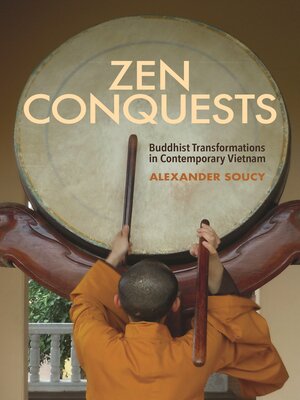
Sign up to save your library
With an OverDrive account, you can save your favorite libraries for at-a-glance information about availability. Find out more about OverDrive accounts.
Find this title in Libby, the library reading app by OverDrive.



Search for a digital library with this title
Title found at these libraries:
| Loading... |
At the tail end of the twentieth century, a monk transformed a small village temple on the outskirts of Hanoi into a monastery and meditation center called Thiền Viện Sùng Phúc—a place where monastics and lay Buddhists could learn and practice Zen meditation. In time the original temple was replaced by numerous large buildings to accommodate meditation sessions, youth events, weddings, classes, and a variety of other activities designed to keep practitioners engaged. Thiền Viện Sùng Phúc's approach to Buddhism as a life commitment for all ages and genders has been very successful, attracting more than a thousand Buddhists to its weekly services. It joined Thiền phái Trúc Lâm, a much larger organization started by Thích Thanh Từ in southern Vietnam that has expanded to northern Vietnam and internationally. In Zen Conquests, Alexander Soucy presents not only the first ethnography of Thiền Viện Sùng Phúc and its followers, but also a compelling look at how the discourses of Buddhist Modernism were incorporated at a local level into this new space on the outskirts of Hanoi and how and why new constituencies of followers are drawn to Zen Buddhism in contemporary Vietnam.
Thiền Viện Sùng Phúc's Zen tradition purports to be a continuation of the only Zen Buddhist sect founded in Vietnam: the fourteenth-century Trúc Lâm Zen School. However, the movement can also be seen as the product of Buddhism's globalization, born from the D. T. Suzuki-inspired interest in Zen in South Vietnam during the American War. Despite its claims to be authentically Vietnamese Zen, it more closely resembles Modernist versions of Buddhism practiced by Western converts in North America than anything Vietnamese. Soucy maintains that it is only by looking at the processes of globalization that Vietnamese Buddhism (both in the context of Vietnam but also in the Vietnamese diaspora) can be properly understood. He argues convincingly for acknowledging the continued influence of transnational, pan-Asian, and global flows of migration and communication on the development of multiple forms of Buddhism worldwide.






